BCU initiates resolution of the issue of visits by advocates to convicted persons
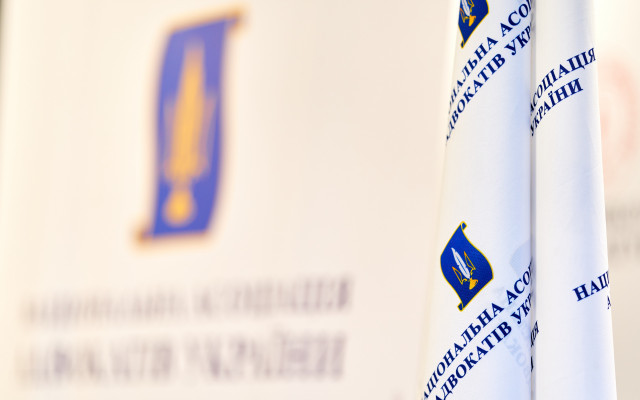
Article 110 of the Criminal Enforcement Code guarantees convicted persons confidentiality of meetings with their advocate. One of the important elements is the possibility to communicate with an advocate in a room without a solid partition. In practice, this provision of the law is systematically violated.
The existing problem was examined by the Bar Council of Ukraine during its meeting on May 6.
The reason for the meeting was an appeal by advocate Yevgenia Shara, who reported that on April 17, on behalf of the Northern Interregional Center for the Provision of Free Legal Aid, she arrived at Zhytomyr Penal Colony No. 4 to conduct a confidential meeting with a convict.
She provided all the necessary documents, including a copy of the power of attorney and her lawyer's certificate, and requested in writing that the meeting be held without a partition.
After passing through the checkpoint and waiting at the facility, the advocate was informed that the meeting could only take place through glass in the presence of other persons. Alternatively, she was offered to conduct the visit without glass, but (for her own safety) subject to a personal search by a female employee of the facility. The woman refused to be searched, citing her professional status and the absence of grounds for such actions, in particular due to her compliance with the dress code and the open contents of her document folder. In response, E. Shari was informed that refusal to be searched would make it impossible to meet with the convicted person in confidence.
As a result, she was unable to conduct the planned communication and sign the necessary documents with her client.
The advocate is convinced that the refusal to grant a confidential meeting and the requirement for a personal search violate her professional rights, impede the exercise of her advocacy and do not ensure the preservation of attorney-client privilege.
She also pointed out that the facility does not have a specially equipped room for confidential meetings between advocates and their clients, and in most cases, visits are conducted through glass. Therefore, such violations are systematic. At the same time, there are no effective mechanisms to protect the rights of advocates while performing their professional duties in penal institutions.
Oksana Kadenko, Chairman of the UNBA Committee on Free Legal Aid and member of the BCU, drew attention to the fact that in penitentiary institutions, advocates are considered «sources of increased danger» and are subject to additional measures.
She explained that in order to meet the quality standards for the provision of free legal aid, the advocate must sign certain documents with the client, in particular, a protocol of agreement containing attorney-client privilege. When the meeting takes place through glass, the documents are handed over by a prison officer, who checks their content and decides whether to give them to the prisoner.
«The advocate tried to explain, refer to the provisions of the law, and initiate their application to ensure a confidential meeting... without a partition, without an earpiece, with the possibility of handing over documents to the client, directly receiving information and passing it on, but she was refused», - O. Kadenko commented on the situation. Referring to her own experience, she noted that in penal institutions, advocates are indeed sent to rooms equipped with a partition wall, and visits take place in the presence of an employee of the institution.
The BCU member explained the essence of the applicant's position: there are two subsystems under the Ministry of Justice: the penitentiary and the free legal aid. An advocate who has been instructed to provide legal aid is in a vulnerable position in a penal institution. At the same time, the ministry, which has the ability to resolve the problem, does not synchronize the work of these two systems.
Since the problem concerns all advocates, O. Kadenko proposed to make the case of Y. Shara a model case and to organize an open roundtable event on the platform of the Ukrainian National Bar Association with the participation of representatives of the Ministry of Justice and the Parliamentary Commissioner for Human Rights.
«I am confident that this institution will partner with us in resolving these issues, because violations of the right to confidential visits and the lack of mechanisms for the proper implementation of the rights of convicts to access legal aid are not only our issue, but first and foremost the issue of the Human Rights Commissioner, - said the BCU member. - By joining forces, we will be able to achieve real results and change the legal practice, which is necessary for both advocates and convicts».
The members of the Bar Council of Ukraine voted unanimously in favor of this decision.
Popular news
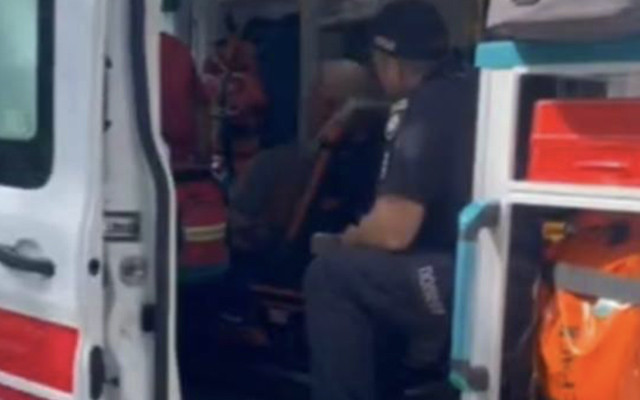
Advocacy
Another conflict with the TCC: an advocate's leg was broken and his client jumped out of a window
On June 19, at the premises of the military medical commission, where a bus from the Krasnograd Territorial Center for Recruitment and Social Support delivered several people, an incident occurred involving the use of physical force against an advocate.
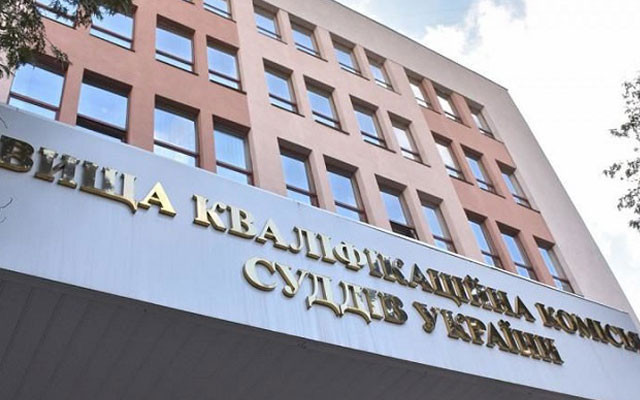
Advocacy
The Bar Council of Ukraine appealed to the High Council of Justice due to delays in forming the Competition Commission of t…
On June 13, 2025, Lidiya Izovitova, President of the Bar Council of Ukraine, addressed Grigory Usik, Head of the High Council of Justice, regarding the violation of the deadlines for forming a new composition of the Competition Commission for the selection of members of the High Qualification Commission of Judges of Ukraine.
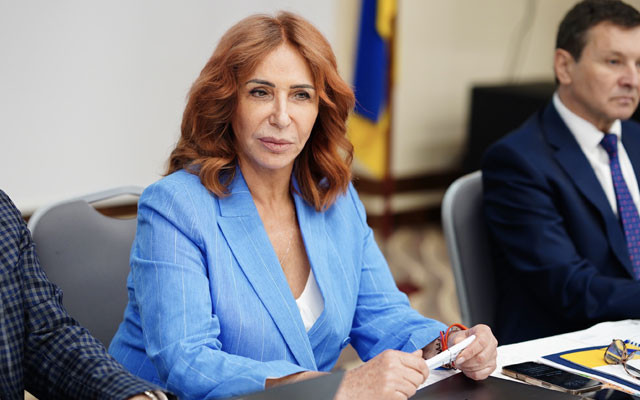
Advocacy
UNBA calls for compliance with Council of Europe standards for the legal profession
The recently approved roadmap for EU accession in terms of bar reform refers to non-existent European standards and was adopted in violation of international principles. Therefore, before talking about changes, it is necessary to compare the current model of the bar with the Council of Europe standards embodied in the Convention on the Protection of the Profession of Lawyer.
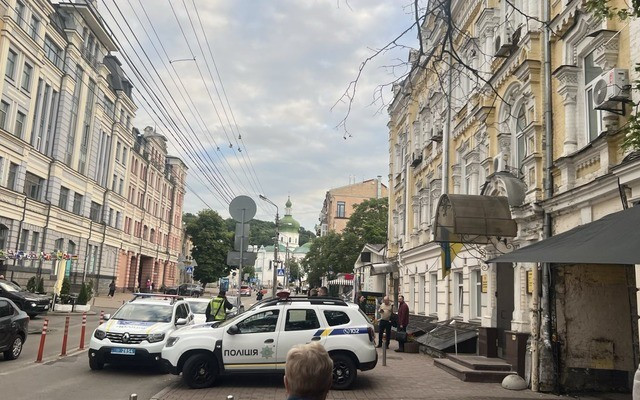
Advocacy
Mobilization of advocates in court: UNBA records another case of pressure
The Ukrainian advocacy has once again faced extrajudicial influence on advocates with the aim of obstructing the exercise of their legitimate powers related to the provision of professional legal assistance to clients.
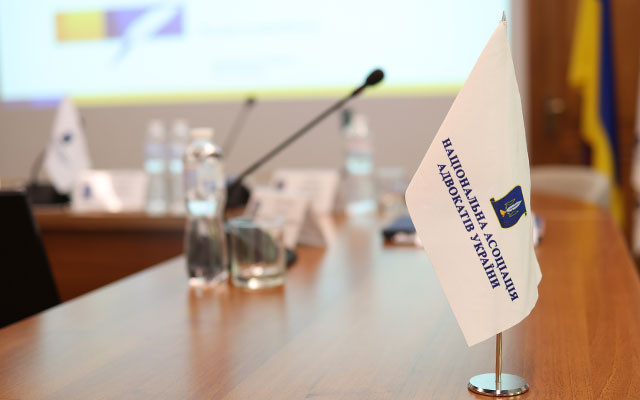
Advocacy
BCU demands verification of authenticity of SSU letter on «dangerous» advocacy
The Bar Council of Ukraine will appeal to the head of the Security Service of Ukraine, Vasyl Malyuk, regarding the verification of information about «negative trends in the legal profession» disseminated by some media outlets on behalf of the SSU.
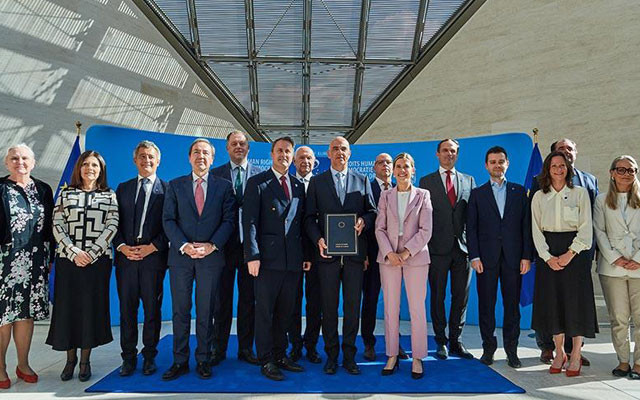
Advocacy
Council of Europe Convention on the Protection of the Profession of Advocate open for signature
Thirteen member states of the Council of Europe have signed the Convention on the Protection of the Profession of Advocate, which was adopted by the Committee of Ministers of the Council of Europe on March 12, 2025. Four more countries will do so today. Ukraine is not among them.

Advocacy
BCU initiates resolution of the issue of visits by advocates to convicted persons
Article 110 of the Criminal Enforcement Code guarantees convicted persons confidentiality of meetings with their advocate. One of the important elements is the possibility to communicate with an advocate in a room without a solid partition. In practice, this provision of the law is systematically violated.
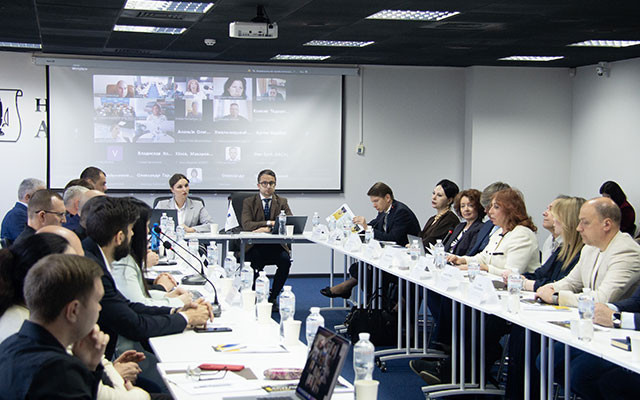
Advocacy
Advocates, academics, and experts examine problems in forensic examination (video)
The Ukrainian National Bar Association, in cooperation with leading scientific and research institutes of forensic expertise, organized a round table on expert support for legal practice.
Publications

Ihor Kolesnykov A BRIEF SUMMARY REGARDING THE APPLICATION OF THE ORDER ON EXTENDED CONFISCATION IN LATVIA REGARDING FINANCIAL ASSETS OF…

Valentyn Gvozdiy WORKING IN A WAR ZONE

Lydia Izovitova Formula of perfection

Sergiy Vylkov Our judicial system is so built that courts do not trust advocates

Iryna Vasylyk Advocacy in the proclamation of Independence of Ukraine

Oleksandr DULSKY When we cross the border of the Supreme Anti-Corruption Court, we get into another department of the National Anti-Corruption…

Vadym Krasnyk The UNBA will work, and all obstacles and restrictions are only temporary inconveniences

Lydia Izovitova Interview with Lydia Izovitova on the occasion of the 8th anniversary of the founding of UNBA: We are the voice of t…
